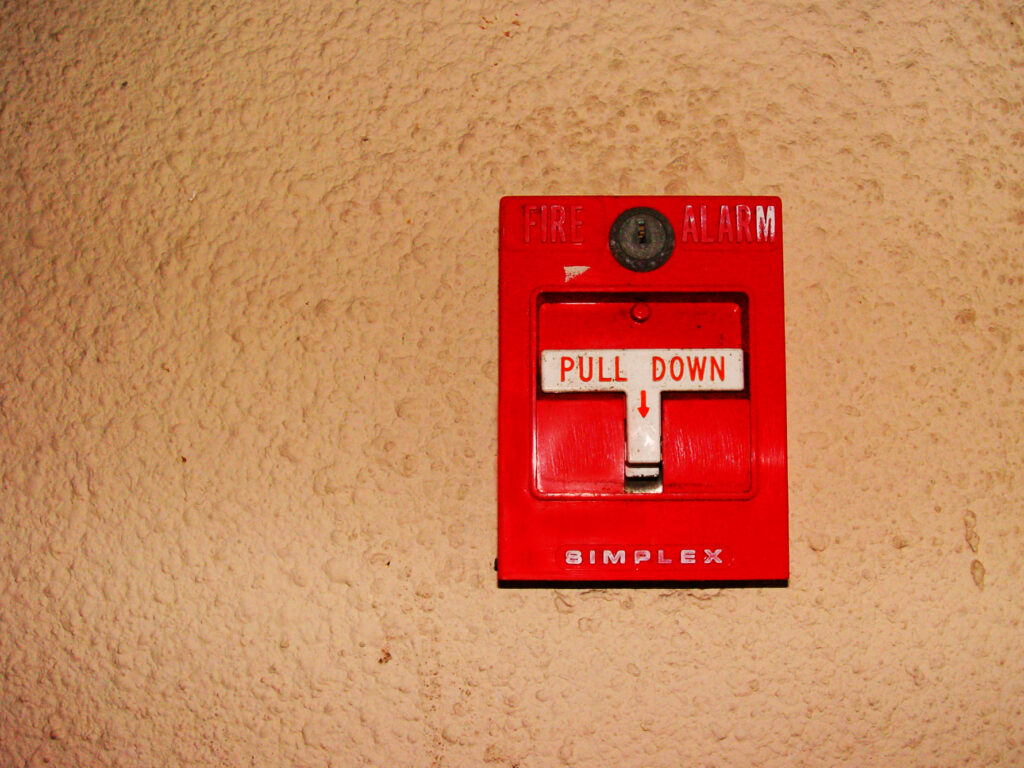Business Fire Alarm Systems – Why Are They So Important?

By investing in a fire alarm system, you'll be able to alert everyone on your premises and give them adequate time to evacuate immediately.
Did you know that in 2019-20 the Fire and Rescue Services in the UK attended 153,957 fire-related incidents?
It shows that fire is a serious threat to any building, and your business premises will not spare from this.
We cannot strain enough the importance of protecting your business from the risk of fire, no matter the nature of your business. The good way to do this is by adopting the best possible fire safety practices, including a risk assessment and management in the form of a commercial fire alarm system.
By investing in a fire alarm system, you’ll be able to alert everyone on your premises and give them adequate time to evacuate immediately. You’ll also be able to call the fire services to extinguish the fire as quickly as possible and therefore minimize damage.
Such a system will protect life and is also a legal requirement. You will be responsible for the fire safety in your business as the owner, employer, or any other controlling position.
Should you wish to find out more, read below for our article on commercial fire alarm systems, the different types available, and how they work, written in collaboration with Brunel Fire and Security, leading providers of fire alarm system Bristol.
Table of Contents
How Does a Fire Alarm System Work?
Fire alarms work thanks to specialized sensors that detect smoke, heat, or increased carbon monoxide.
When this sensor triggers, the alarm will go off, warning people to get themselves to safety.
A full fire alarm system will compose of a control panel, power supplies, initiating devices, and notification devices.
Some systems will also incorporate sprinklers that can instantly extinguish flames, two-way communication, and remote monitoring systems.
What is Remote Monitoring?
Some fire alarm systems will link to a professional Alarm Receiving Centre that will constantly monitor your system. It guarantees instant action should be the unfortunate event of a fire breaking out, and they will call the fire brigade and other authorities.
Types of Fire Alarm Systems
There are two different types of fire alarms to choose from. These are conventional and addressable systems. And both link devices such as sensors, detectors, and pull stations to a control panel. However, they both differ in how they link together and work overall.
Conventional Fire Alarm Systems
Conventional fire alarm systems are set up in zones that link to one main control panel. When the fire alarm is triggered, you’ll be able to use the control panel to recognize the location of the fire by recognizing the zone it is in.
It’s important to note that these zones can be broad. For example, if your building has four floors, and each floor is a zone, a conventional fire alarm system will identify the floor but not where the fire is on that floor.
These systems are perfect for small commercial properties such as individual offices and shops.
Addressable Fire Alarms
Addressable fire alarms differ from conventional fire alarms as each device on the system will have an address or location. Then, each device is monitored from one central location. Therefore, this system will allow you to identify exactly where the fire is.
It makes addressable fire alarms excellent for larger commercial properties such as multi-story buildings and large building complexes.
Grades of Fire Alarms
It’s also important to understand that fire alarms run through various grades and categories, as noted in the British Standard BS5839. These six grades detail the type of equipment that the system uses.
- Grade A: Separate detectors and sounders with a backup power supply and a central control panel conforming to British Standards BS EN 54.
- Grade C: Separate detectors and sounders and a central control panel connected to a common power supply, with a mains and standby supply.
- Grade D1: One or more detectors, powered on a mains supply with a tamper-proof standby supply consisting of battery cells.
- Grade D2: One or more detectors, powered on the mains, and a standby supply consisting of battery cells.
- Grade F1: One or additional detectors, powered by tamper-proof, replaceable primary batteries.
- Grade F2: One or more fire detectors powered with replaceable primary batteries.
There are also various categories of fire alarm systems to comply with British Standards;
- Category M: M for ‘manual,’ consisting of all manual fire alarms where the alarm must be triggered manually, such as at a call point. These are simple systems.
- Category L: L for ‘life protection,’ consisting of fire alarms that protect life. There are five levels of category L, L1-L5, with 1 being the highest protection level and five offerings enough protection to fulfill basic requirements.
- Category P: P stands for ‘property,’ consisting of fire alarms that protect property. Two levels, P1-P2, offer various levels of protection, with P1 providing complete protection and P2 with detectors in certain defined parts of your premises.
Also Read: How to Choose the Right Java Development Company That Fits Your Needs?
How to Choose Your Fire Alarm
When you’re choosing the best fire alarm for your premises, you need to keep in mind the following:
- The size of your property,
- Where you are based,
- The sector you work in,
- Which features you’d like to include.
We hope the info has given you some insight into your business’s fire alarm systems. And the importance of having such a system. It’s also important to remember that as per the law, should you have an existing fire alarm that develops faults, it is mandatory to get it repaired as quickly as possible. A faulty alarm can result in false alarms, or even prevent it from triggering should a fire develop.
Make sure to get in touch with a fire alarm specialist today.




